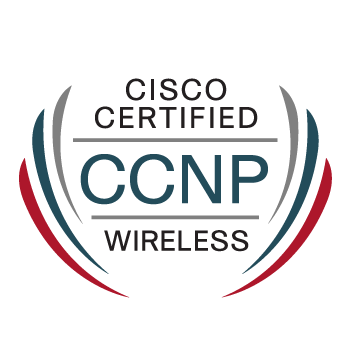- Cisco Community
- Technology and Support
- Security
- VPN
- In most situations I would
- Subscribe to RSS Feed
- Mark Topic as New
- Mark Topic as Read
- Float this Topic for Current User
- Bookmark
- Subscribe
- Mute
- Printer Friendly Page
crypto map local address command
- Mark as New
- Bookmark
- Subscribe
- Mute
- Subscribe to RSS Feed
- Permalink
- Report Inappropriate Content
06-19-2017 12:20 PM
Why do w e use " crypto map local address command"
- Labels:
-
VPN
- Mark as New
- Bookmark
- Subscribe
- Mute
- Subscribe to RSS Feed
- Permalink
- Report Inappropriate Content
06-19-2017 01:58 PM
Most of the times you don't need that command. But there are some deployments where you can use it. For example you are connected to two ISPs with Provider Independent (PI) addresses. You can terminate the VPN on a loopback that is reachable through both ISPs. While the crypto map is still applied to the physical (outside) interfaces, the router has to know that the loopback is the "logical" termination-point. Here you need to configure that command.
- Mark as New
- Bookmark
- Subscribe
- Mute
- Subscribe to RSS Feed
- Permalink
- Report Inappropriate Content
06-19-2017 04:25 PM
Thanks Karsten..!! 🙂
- Mark as New
- Bookmark
- Subscribe
- Mute
- Subscribe to RSS Feed
- Permalink
- Report Inappropriate Content
06-21-2017 04:30 PM
Hello Karsten,
What is the difference between GRE over IPsec & IPsec over GRE...??
- Mark as New
- Bookmark
- Subscribe
- Mute
- Subscribe to RSS Feed
- Permalink
- Report Inappropriate Content
06-25-2017 12:01 PM
In most situations I would assume that both refer to the same and only the wrong term is used. But what is it:
GRE over IPsec first encapsulates the packet in GRE and the resulting packet is protected with IPsec. This is very common for the flexibility of GRE (like Multicast and multiple protocol support).
You could also first protect the data with IPsec and then encapsulate that in GRE. But that is quite uncommon.
- Mark as New
- Bookmark
- Subscribe
- Mute
- Subscribe to RSS Feed
- Permalink
- Report Inappropriate Content
06-19-2017 04:30 PM
Hello Karsten,
Can I have one more clear example to explain it more clearly.
Thanks in advance..!!!
- Mark as New
- Bookmark
- Subscribe
- Mute
- Subscribe to RSS Feed
- Permalink
- Report Inappropriate Content
06-20-2017 01:02 AM
That is the only use-case I'm aware of at the moment. Perhaps someone else has some more?
- Mark as New
- Bookmark
- Subscribe
- Mute
- Subscribe to RSS Feed
- Permalink
- Report Inappropriate Content
06-25-2017 01:07 PM
I found a link that identifies another use case for local address
If Internet Key Exchange is enabled and you are using a certification authority (CA) to obtain certificates, this should be the interface with the address specified in the CA certificates.
Here is the link if you want additional details
http://www.cisco.com/c/en/us/td/docs/ios/12_2/security/command/reference/srfipsec.html
It is a bit old but its information is still valid.
HTH
Rick
Rick
- Mark as New
- Bookmark
- Subscribe
- Mute
- Subscribe to RSS Feed
- Permalink
- Report Inappropriate Content
10-24-2018 09:29 AM
What if you have multiple loopback interfaces that need to be logical termination points. Would this require multiple crypto-maps?
Thanks
Discover and save your favorite ideas. Come back to expert answers, step-by-step guides, recent topics, and more.
New here? Get started with these tips. How to use Community New member guide

